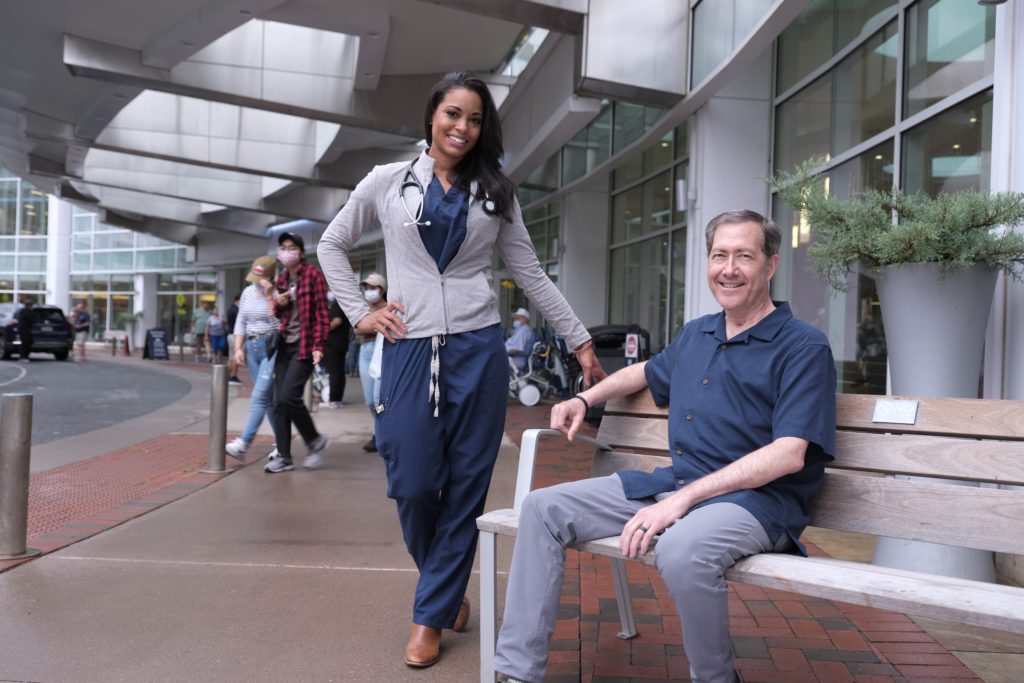
What is a physician anesthesiologist?
Physician anesthesiologists are medical doctors just like your primary care physician and surgeon. They specialize in anesthesia care, pain management, and critical care medicine, and have the necessary knowledge to understand and treat the entire human body. Physician anesthesiologists have 12 to 14 years of education, including medical school, and 12,000 to 16,000 hours of clinical training.
Physician anesthesiologists evaluate, monitor, and supervise patient care before, during, and after surgery, delivering anesthesia, leading the Anesthesia Care Team, and ensuring optimal patient safety.
Physician anesthesiologists specialize in anesthesia care, pain management, and critical care medicine.
Leading Your Care
Before Covid, entrepreneur Jim Stewart was in perfect health. He was working out with a trainer and celebrating a personal best, lifting 300 on the deadlift.
Then in late summer 2021, his family contracted Covid. While his wife and daughter recovered, he was hit hard. By Oct. 1, he was airlifted from Lynchburg to the University of Virginia hospital. He fell into a coma for six weeks.
“By that point I had almost died two or three times,” Stewart says. When he woke up, it felt like a miracle, he says. But he needed a lung transplant.
Through the hospital and family connections, Stewart got to know Dr. Ebony Jade Hilton, a critical care anesthesiologist at the University of Virginia. That’s how he learned about the role anesthesiologists play in leading patient care and the surgical team.
“I had a lot of questions and she answered them all,” Stewart says. The medical team lead him through a difficult and challenging 12-hour surgery. But talking with Dr. Hilton and understanding her experience gave his family peace of mind.
“Meeting her ahead of time — it really did prepare me for what was going to happen,” he says. “But equally so, it gave my wife a sense of security that I was in good hands. I could tell that she was very experienced, and she was good at what she did — and she loved it. That did give me a sense of security going into a surgery that I knew it was make or break for me.”
“It really is quite a miracle that I’m even here.”
Jim Stewart, COVID survivor, Lung Transplant Patient

Anesthesia 101
Find out about the types, effects, and risks — and what physician anesthesiologists do before, during, and after surgery to keep you safe.
Pain Management
Discover how physician anesthesiologists can help you safely and effectively manage pain from surgery, injury, labor, or chronic conditions.
Preparing for Surgery
Know what to ask your surgeon and physician anesthesiologist to make your procedure as safe as possible and to heal faster.
Stories
Education and Training Prepare Physician Anesthesiologists for Crisis Response
Spinal Cord Stimulator Helps Chronic Pain Patient Return to Normal Life
Decision To Call Off Surgery Discovers Second Cancer Diagnosis

Helped Ensure Transplant Patient Gets Gift of Life
Education and Training Prepare Physician Anesthesiologists for Crisis Response
